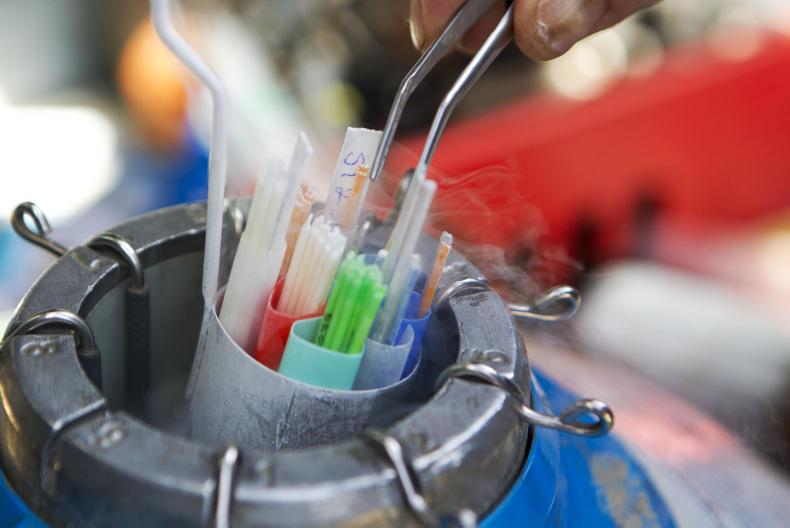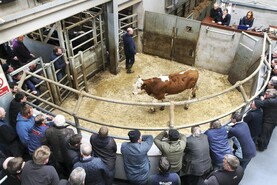LIC has confirmed its artificial breeding bulls are free from the mycoplasma bovis cattle disease.
Thousands of cattle in New Zealand have been tested for mycoplasma bovis, a disease found in cattle around the world, including Australia, but was only first detected in New Zealand this year.
More than three out of four cows grazing on New Zealand dairy farms are sired by an LIC bull.
Although confident the disease was not present in its bulls, the co-op announced in September it would test for the disease to provide its farmers with greater peace of mind through the dairy mating season.
Chief scientist Richard Spelman said: “We’ve now completed the testing and I am pleased to confirm that all LIC bulls have received negative test results with no sign of mycoplasma bovis.
“The results are as we expected and in line with the MPI [Ministry of Primary Industries] investigation which indicates the infection was limited to a few herds within New Zealand.
“We are pleased to provide our farmers with the confirmation and greater peace of mind for the mating season which is under way on farms right now.”
Testing
The PCR (Polymerase Chain Reaction) testing was done on semen samples at the co-op’s MPI-accredited laboratory in Hamilton.
Bulls that LIC currently has on its farms and commercially available this season were tested, including the Premier Sires teams, Sire Proving Scheme, SGL and Wagyu.
From a young age, LIC bulls are permanently kept in strict quarantine, under close veterinary supervision, LIC said.
Meanwhile, collection bulls are regularly monitored for any signs of disease to ensure that semen is only processed from healthy bulls.
Spelman said this will continue as part of normal practice.
Background
The disease was first found in 170 cows in a dairy herd in South Canterbury in the country earlier this year.
It is a bacterial disease and does pose a risk to humans. It presents no food safety risk. It spreads from animal to animal through close contact and is not windborne.
Cattle that become affected by the disease will always be carriers of it.
Read more
LIC to test breeding bulls for disease affecting NZ cattle
LIC pulls back on semen contracts
LIC has confirmed its artificial breeding bulls are free from the mycoplasma bovis cattle disease.
Thousands of cattle in New Zealand have been tested for mycoplasma bovis, a disease found in cattle around the world, including Australia, but was only first detected in New Zealand this year.
More than three out of four cows grazing on New Zealand dairy farms are sired by an LIC bull.
Although confident the disease was not present in its bulls, the co-op announced in September it would test for the disease to provide its farmers with greater peace of mind through the dairy mating season.
Chief scientist Richard Spelman said: “We’ve now completed the testing and I am pleased to confirm that all LIC bulls have received negative test results with no sign of mycoplasma bovis.
“The results are as we expected and in line with the MPI [Ministry of Primary Industries] investigation which indicates the infection was limited to a few herds within New Zealand.
“We are pleased to provide our farmers with the confirmation and greater peace of mind for the mating season which is under way on farms right now.”
Testing
The PCR (Polymerase Chain Reaction) testing was done on semen samples at the co-op’s MPI-accredited laboratory in Hamilton.
Bulls that LIC currently has on its farms and commercially available this season were tested, including the Premier Sires teams, Sire Proving Scheme, SGL and Wagyu.
From a young age, LIC bulls are permanently kept in strict quarantine, under close veterinary supervision, LIC said.
Meanwhile, collection bulls are regularly monitored for any signs of disease to ensure that semen is only processed from healthy bulls.
Spelman said this will continue as part of normal practice.
Background
The disease was first found in 170 cows in a dairy herd in South Canterbury in the country earlier this year.
It is a bacterial disease and does pose a risk to humans. It presents no food safety risk. It spreads from animal to animal through close contact and is not windborne.
Cattle that become affected by the disease will always be carriers of it.
Read more
LIC to test breeding bulls for disease affecting NZ cattle
LIC pulls back on semen contracts






 This is a subscriber-only article
This is a subscriber-only article










SHARING OPTIONS: